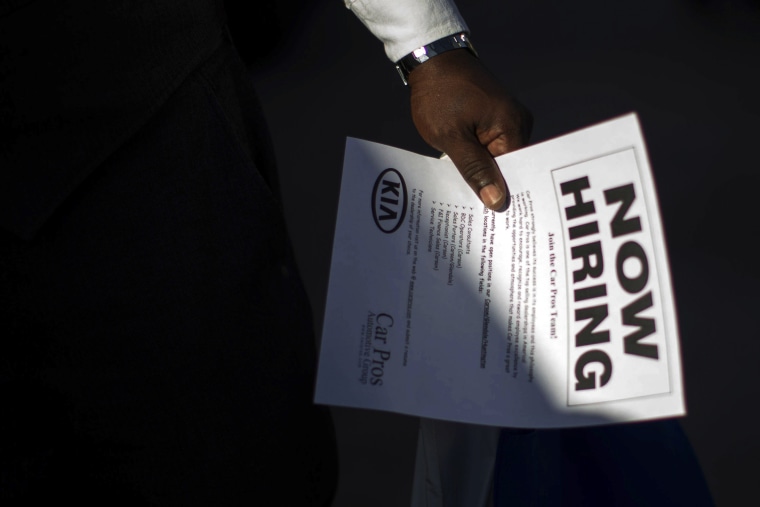By a 4-to-1 margin, Americans say that domestic issues like the economy, health care, Medicare and Social Security are more important in deciding their vote for Congress than issues like the Ebola virus and the fight against ISIS, according to the new NBC News/Wall Street Journal national poll.
Seventy-seven percent of all voters pick the combined domestic issues, while just 19 percent say subjects like the Ebola virus, ISIS and Russia’s actions in Ukraine are more important in deciding their vote.
“It’s not ISIS, it’s not Ebola,” says Democratic pollster Peter Hart, who conducted the survey with Republican pollster Bill McInturff. “It’s come back to the basics.”
Strikingly, however, those who are energized about international issues are voting for Republicans.
The minority of likely voters who say Ebola, ISIS, and Russia are more important to their vote prefer a Republican-controlled Congress by more than 30 points, 63 percent to 29 percent.
By comparison, the majority focusing more on domestic issues prefer a Democratic-controlled Congress, 52 percent to 40 percent.
RELATED: Issues that matter to new voters
Fewer than one-in-five voters are emphasizing Ebola and ISIS, McInturff says, but they are consolidating a core part of the Republican base.
Overall, the individual issues that are most important to voters are job creation and economic growth (23 percent of registered voters pick that as their top issue), breaking Washington’s gridlock (another 23 percent), the deficit (12 percent), health care (9 percent) and Social Security and Medicare (another 9 percent)
Just 7 percent pick the military action against ISIS as their top issue, and only 2 percent point to the Ebola outbreak.
President Barack Obama’s approval rating stands at 42 percent among voters, which is unchanged from last month’s NBC/WSJ poll. But most voters – Democrats and Republicans alike – say the president isn’t that big of factor in determining their vote.
Among those preferring a Republican-controlled Congress, 45 percent say their vote is a positive vote for Republicans in Congress, another 25 percent say it’s to protest the Obama administration and 19 percent say it’s to protest Democrats in Congress.
Among those preferring a Democratic-controlled Congress, 41 percent say their decision at the ballot box is a positive vote for congressional Democrats, 27 percent say it’s to protest Republicans and another say 26 it’s a positive vote for the Obama administration.
The popularity (or unpopularity) contest
Also in the poll, 43 percent view Obama positively, while 45 percent view him negatively – essentially unchanged from last month.
By comparison, the Democratic Party has a 36 percent positive/43 percent negative rating, and the Republican Party’s rating is 29 percent positive/47 percent negative.
The Tea Party stands at 20 percent positive, 42 percent negative.
Republicans vs. Democrats on the issues
On the issues, Democrats hold a 12-point advantage over Republicans on which party does a better job on Social Security (38 percent to 26 percent), a seven-point edge on health care (39 percent to 32 percent) and a four-point advantage on stopping American jobs from going overseas (28 percent to 24 percent).
Meanwhile, Republicans hold a one-point advantage on dealing with Ebola (19 percent to 18 percent), a two-point edge on changing how things work in Washington (25 percent to 23 percent), a nine-point lead on dealing with the economy (39 percent to 30 percent) and a 22-point lead on dealing with ISIS in Iraq and Syria (39 percent to 17 percent).
Other numbers in the poll
- Just 27 percent of voters believe the country is headed in the right direction, while 63 percent say it’s on the wrong track.
- And just 36 percent are satisfied with the state of the economy, versus 64 percent who are dissatisfied.
The NBC/WSJ poll was conducted Oct. 30-Nov. 1 of 1,200 registered voters (a margin of error of plus-minus 2.8 percentage points), including 826 likely voters (plus-minus 3.4 percentage points) and 275 likely voters in the Top 10 Senate battlegrounds (plus-minus 5.9 percentage points)
